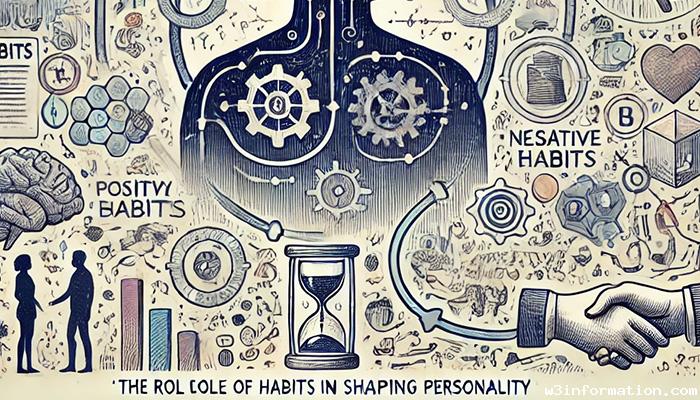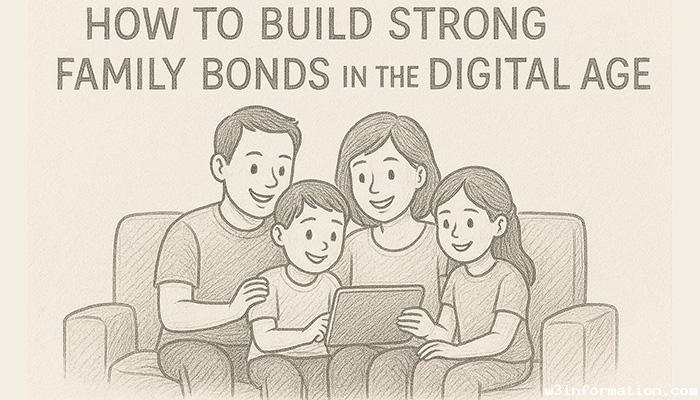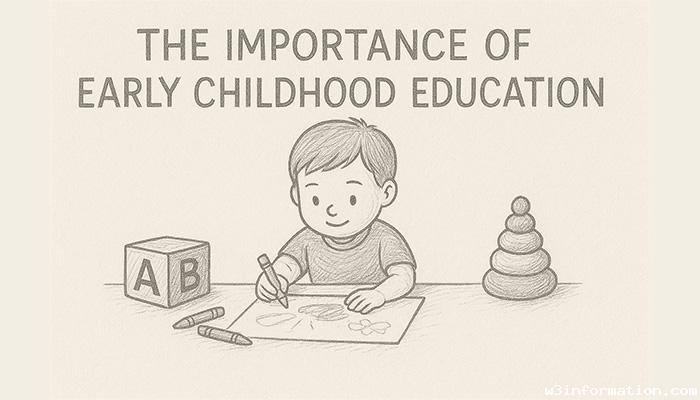The Role of Habits in Shaping Personality
Through their influence on thoughts and emotions individuals develop habitual behaviors which become integral to personality development over time. A habit results from a repeated action that transforms into an automatic response through ongoing practice. The brain creates neural pathways which enable easier performance of repeated actions through reduced conscious effort. As time passes these automated behaviors become embedded within individuals and play a crucial role in forming their personality traits. Habits regardless of their nature impact the way individuals approach situations, make choices, and engage with their surroundings.
How Habits Influence Personality Development
The way people interact with their environment stems from a blend of their traits, attitudes and behaviors which together make up their personality. Consistent patterns of thought and behavior become reinforced through habits which drive this developmental process. Regular mindfulness practice leads to a calm and focused demeanor whereas frequent negative self-talk tends to create anxiety and low self-esteem. Through constant practice these habits develop into character-defining traits that shape an individual's perception and reactions in diverse situation

The Development of Habits and Their Effects on Brain Function
Habit formation involves critical brain functions where the basal ganglia stores established habitual patterns. The brain fortifies neural connections related to behaviors through repetition which facilitates easier performance of these actions. As these neural pathways strengthen over time they enable behaviors to execute automatically without conscious control. The technique of “chunking” helps people carry out tasks better while demonstrating the substantial impact habits have on personality traits.
Positive Habits and Their Effect on Personality
Desirable personality traits develop when positive habits motivate people to engage in behaviors that advance their growth and well-being.
Practicing Gratitude:
Practicing gratitude boosts positivity while building emotional resilience which results in an optimistic worldview.
Regular Exercise: Regular exercise develops discipline while strengthening determination and responsibility.
Reading and Lifelong Learning: Enhances curiosity, critical thinking, and intellectual growth.
These positive habits help people build a balanced personality which enables them to face life's challenges confidently and maintain emotional stability.
Negative Habits and Their Impact on Personality
On one side of the spectrum negative habits contribute to strengthening unwanted personality characteristics. The practices of procrastinating tasks, avoiding responsibilities and maintaining negative thought patterns result in feelings of self-doubt along with insecurity and decreased motivation.
Procrastination
Procrastination results in inefficient time management and elevated stress which then creates feelings of inadequacy.
Negative Self-Talk: Negative self-talk strengthens feelings of low self-esteem and anxiety which results in a recurring pattern of negative emotions.
Unhealthy Lifestyle Choices: Physical and emotional instability affects overall well-being through unhealthy lifestyle choices.
When these negative habits remain unaddressed they block personal development and stop people from achieving their maximum capabilities.
Habits serve as a fundamental mechanism that leads to building discipline and achieving consistency in one's life.
Habits lay the foundation for discipline and consistency which together help to develop a robust and durable personality. Discipline emerges when people stick to beneficial habits even though they face obstacles or discomfort. Discipline evolves into a core characteristic through continuous practice enabling people to stay focused and manage their time while overcoming obstacles. The practice of consistency combined with strong habits enables the maintenance of positive behaviors which help individuals establish permanent personality transformations.
Transforming Personality Through Habit Change
Habits remain changeable through intentional effort despite their variable nature. When individuals substitute their negative habits with positive ones they redefine their personality to cultivate traits which match their personal objectives and values. The process of habit change involves:
Self-Awareness: Identifying existing habits and understanding their impact.
Setting Realistic Goals: Develop measurable objectives that can replace negative habits with positive behavior.
Reinforcing Positive Behavior: Repeating desired actions until they become automatic.
Rewarding Progress: Sustaining motivation requires recognition and celebration of minor accomplishments.
The Power of Small, Consistent Changes
Personality undergoes significant transformation through gradual and steady changes. Regular practice of small adjustments produces significant transformative effects. When you make a daily practice of showing gratitude you build a positive mindset and practicing empathy allows you to develop strong connections and greater emotional intelligence. Through continuous attention to incremental improvements individuals can transform their cognitive patterns and actions to develop stronger personality traits that reflect balance and resilience.
Conclusion
Personality receives profound influence from habits which mold behavior patterns as well as thought processes and emotional reactions. Desirable characteristics like discipline and optimism emerge from positive habits whereas negative habits amplify feelings of self-doubt and emotional instability. Through consistent effort people can change their habits to match their objectives which transforms them into balanced individuals with well-rounded personalities. Learning how habits influence personality development enables people to direct their personal growth journey and establish enduring beneficial transformations.
 Top 10 Comfort Foods to Try This Winter
Top 10 Comfort Foods to Try This Winter
 Top 10 Christmas Destinations Around the World
Top 10 Christmas Destinations Around the World
 Navigating Adolescence: Tips for Parents and Teens
Navigating Adolescence: Tips for Parents and Teens
 How to Start a DIY Craft Project on a Budget
How to Start a DIY Craft Project on a Budget
 How to Build Strong Family Bonds in the Digital Age
How to Build Strong Family Bonds in the Digital Age
 The Importance of Early Childhood Education
The Importance of Early Childhood Education